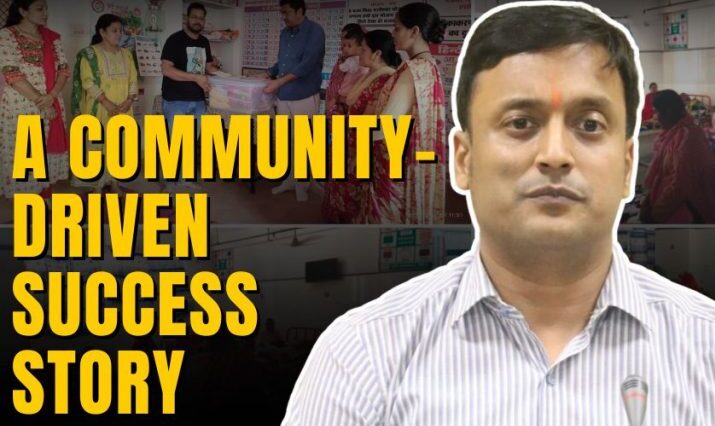In a sunlit Anganwadi centre in rural Vidisha, 26-year-old Rekha Bai gently coaches a young mother on how to prepare a simple, iron-rich meal using local ingredients. She’s not a doctor, not a nurse—just a mother who was trained under Poshan Sanjeevani Abhiyan, an ambitious community nutrition campaign that’s transforming how this central Indian district fights child malnutrition.
With India still home to some of the world’s highest rates of severe acute malnutrition (SAM), stunting, and anaemia, Vidisha is showing what’s possible when policy meets empathy—and when mothers are empowered to become educators, caregivers, and change agents.
A People-Led Movement Rooted in Compassion
Launched under the leadership of IAS officer Anshul Gupta, Poshan Sanjeevani Abhiyan began with a bold belief: that defeating malnutrition would require more than supplements and charts—it would need trust, dignity, and participation.
The initiative is grounded in three principles—Community, Convergence, and Compassion. At its heart are peer educators: trained mothers and Anganwadi workers who teach families about breastfeeding, hygiene, complementary feeding, and nutrition diversity, using familiar language and lived experience.
“We wanted nutrition to be a conversation at the dinner table, not just a report on an officer’s desk,” Gupta said in a recent interview.
Poshan Kendras: Where Healthcare Meets Humanity
A cornerstone of the campaign is the transformation of five underutilized Nutrition Rehabilitation Centres (NRCs) into vibrant Poshan Kendras—centres that blend round-the-clock paediatric care with emotional support, family counselling, and hands-on nutritional learning.
Here, malnourished children are treated not just as patients, but as stories in progress. Mothers stay with them, learn alongside them, and return home as informed caregivers.
“I didn’t know I could help my daughter recover at home,” says Sunita, a mother of three whose child was recently discharged. “But the Poshan Kendra showed me how.”
Whole-of-Government, Whole-of-Society Approach
The campaign thrives on convergence—departments like Health, Women and Child Development, and Panchayati Raj work together to pool resources, streamline services, and eliminate redundancy.
Anganwadi workers, ASHAs, ANMs, and local health officials hold joint reviews, conduct cross-department trainings, and coordinate village-level interventions—replacing bureaucratic silos with shared mission delivery.
To address logistical gaps, Poshan Kits—containing dry rations, cooking supplies, and hygiene essentials—are distributed with help from CSR donors, self-help groups, and community volunteers.
Tracking Progress in Real Time
While the campaign is deeply rooted in human touch, it is also tech-enabled. A digital MIS dashboard tracks admissions, health outcomes, and follow-ups. Weekly field reviews and data audits ensure transparency and allow course correction where needed.
This mix of grassroots action and real-time data has resulted in a notable rise in recovery rates, fewer readmissions, and stronger maternal engagement—a testament to what happens when communities are not just consulted, but centred.
Scaling Up a Success Story
Encouraged by the response, Vidisha is now preparing to scale up its Poshan Kendras, strengthen its peer educator networks, and mentor neighbouring districts in adopting similar models.
Experts and officials alike believe that Poshan Sanjeevani Abhiyan offers more than just a policy intervention—it offers a replicable, emotionally intelligent blueprint for tackling malnutrition across India.
As India continues its battle against child hunger, Vidisha’s experience is a powerful reminder: when mothers are empowered and systems converge with sincerity, even the most complex public health challenges can be transformed—one child at a time.


